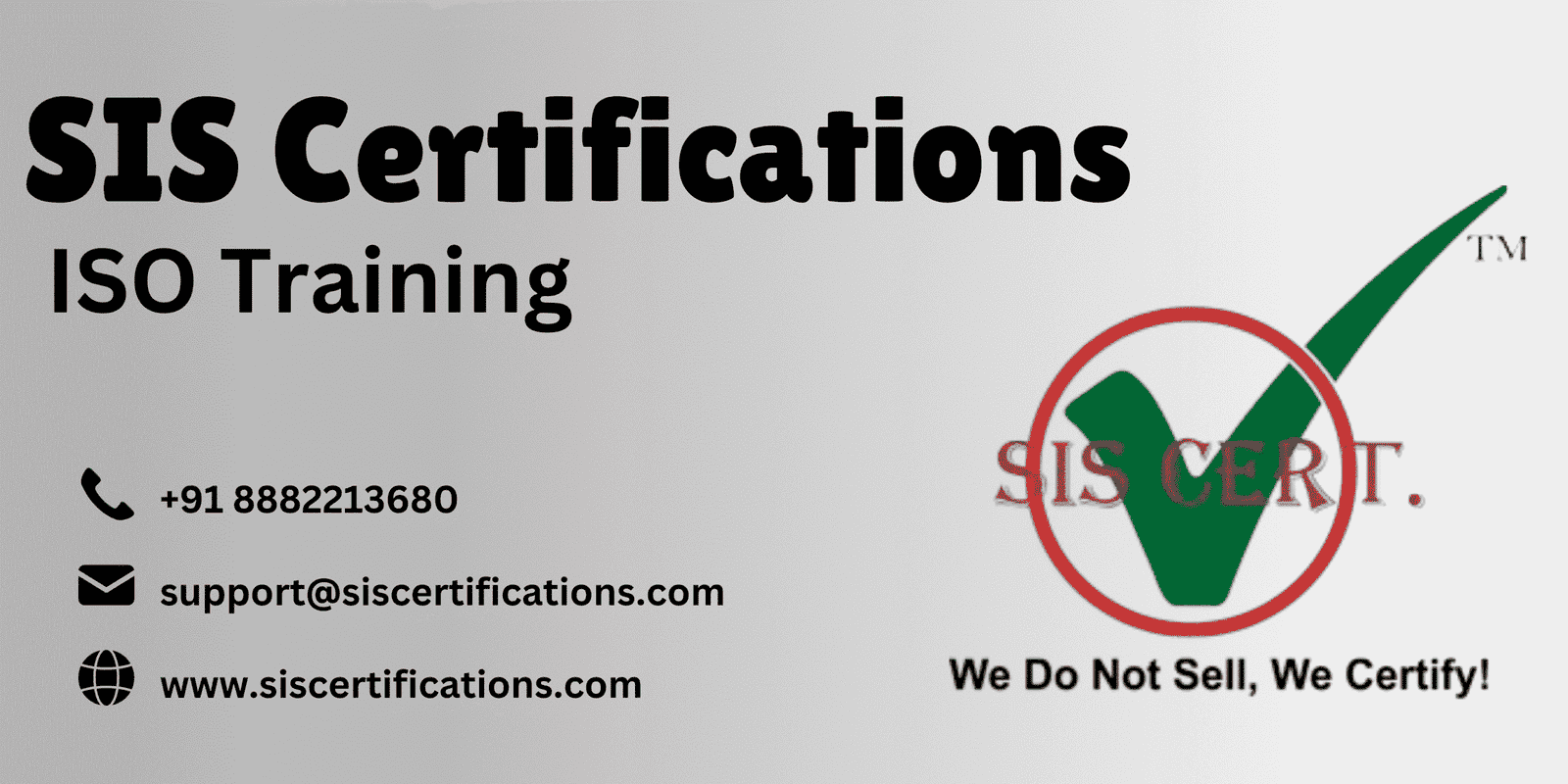Overview of ISO Training
ISO training refers to structured educational programs designed to teach individuals and organizations about the International Organization for Standardization (ISO) standards. These standards are globally recognized frameworks that ensure consistency, safety, and quality across various industries, from manufacturing to healthcare. ISO training covers the principles, requirements, and implementation strategies for specific ISO standards, enabling participants to align their processes with international best practices.
The training is typically offered in various formats, including online courses, in-person workshops, and hybrid models, catering to different learning preferences. It is tailored for diverse audiences, such as employees, auditors, managers, and consultants, who aim to understand, implement, or audit ISO standards. By undergoing ISO training, participants gain a deep understanding of how to apply these standards to improve organizational performance, meet regulatory requirements, and enhance customer satisfaction.
ISO training is not a one-size-fits-all solution. Different ISO standards focus on specific areas, such as quality management (ISO 9001), facility management (ISO 41001), information security (ISO 27001), and occupational health and safety (ISO 45001). Each training program is designed to address the unique requirements of the respective standard, ensuring participants are well-equipped to handle industry-specific challenges.
Advantages of ISO Training
Investing in ISO training offers numerous benefits for both organizations and individuals. Here are some key advantages:
- Enhanced Compliance and Credibility: ISO training ensures that organizations understand and meet the requirements of ISO standards, reducing the risk of non-compliance. Certification demonstrates a commitment to quality and professionalism, boosting credibility among clients and stakeholders.
- Improved Operational Efficiency: By learning how to implement ISO standards, businesses can streamline processes, reduce waste, and optimize resource utilization. ISO training provides practical tools to identify inefficiencies and implement corrective measures.
- Global Market Access: ISO certifications are recognized worldwide, giving organizations a competitive edge in international markets. ISO training equips professionals with the skills to maintain certifications, opening doors to global opportunities.
- Risk Management: Standards like ISO 27001 and ISO 45001 focus on mitigating risks related to information security and workplace safety. ISO training teaches participants how to identify, assess, and manage risks effectively.
- Career Advancement: For individuals, completing ISO training enhances professional credentials, making them valuable assets in industries that prioritize compliance and quality. Certified professionals often qualify for roles such as auditors, consultants, or compliance managers.
- Customer Satisfaction: ISO training emphasizes customer-centric approaches, particularly in standards like ISO 9001. By aligning processes with customer expectations, organizations can improve satisfaction and loyalty.
- Continuous Improvement: ISO standards promote a culture of ongoing improvement. ISO training instills this mindset, encouraging organizations to regularly evaluate and enhance their systems.
By investing in ISO training, businesses and professionals position themselves as leaders in their respective fields, fostering trust and driving sustainable growth.
ISO 9001 Training
ISO 9001 is the world’s Sex international standard for quality management systems. It provides a framework for organizations to ensure consistent quality in products and services. ISO 9001 training is essential for professionals seeking to implement, maintain, or audit quality management systems.
ISO 9001 training covers key concepts such as customer focus, process management, and continuous improvement. Participants learn how to develop, document, and maintain a quality management system that meets ISO 9001 requirements. The training is typically divided into levels, including:
- Foundation Courses: Introduce the basics of ISO 9001, including its structure, principles, and requirements.
- Internal Auditor Courses: Teach participants how to conduct internal audits to ensure compliance with ISO 9001.
- Lead Auditor Courses: Prepare professionals to lead certification audits for ISO 9001 compliance.
By completing ISO 9001 training, individuals gain the skills to improve organizational processes, reduce defects, and enhance customer satisfaction. This training is particularly valuable for industries like manufacturing, healthcare, and services, where quality is a critical differentiator.
Get ISO Training
Ready to unlock the benefits of ISO training? Getting started is easier than you think. Here’s how you can begin your journey:
- Identify Your Needs: Determine which ISO standard aligns with your organization’s goals or career aspirations. For example, ISO 9001 is ideal for quality management, while ISO 27001 focuses on information security.
- Choose a Reputable Provider: Look for accredited training providers that offer certified ISO training courses. Ensure the provider is recognized by relevant certification bodies to guarantee the course’s credibility.
- Select the Right Format: Decide whether you prefer online, in-person, or hybrid training. Online courses offer flexibility, while in-person workshops provide hands-on experience.
- Enroll in a Course: Register for a course that matches your expertise level, whether it’s a foundation, internal auditor, or lead auditor program. Most providers offer schedules to accommodate busy professionals.
- Apply Your Knowledge: After completing the training, implement the learned principles in your organization or pursue certification audits to validate compliance.
ISO training is an investment in your organization’s success and your professional growth. Start today to stay ahead in a competitive market.
ISO 41001 Training
ISO 41001 is the international standard for facility management (FM), focusing on optimizing facility operations to support organizational objectives. ISO 41001 training equips professionals with the skills to manage facilities effectively, ensuring cost-efficiency, sustainability, and user satisfaction.
The training covers topics such as facility planning, maintenance strategies, and performance evaluation. Participants learn how to align facility management with organizational goals, improve workplace environments, and reduce operational costs. ISO 41001 training is ideal for facility managers, property owners, and FM consultants in sectors like real estate, healthcare, and education.
Courses typically include:
- Foundation Training: Introduces the core principles and requirements of ISO 41001.
- Implementation Training: Guides participants on integrating ISO 41001 into facility management systems.
- Auditor Training: Prepares professionals to assess compliance with ISO 41001 standards.
By completing ISO 41001 training, professionals can enhance facility performance, reduce environmental impact, and create productive work environments.
ISO 27001 Training
ISO 27001 is the leading standard for information security management systems (ISMS). ISO 27001 training helps organizations protect sensitive data, manage cybersecurity risks, and ensure compliance with regulations like GDPR.
The training covers risk assessment, security controls, and ISMS implementation. Participants learn how to safeguard information assets, prevent data breaches, and maintain stakeholder trust. ISO 27001 training is critical for IT professionals, security managers, and organizations handling sensitive data, such as financial institutions and tech companies.
Training levels include:
- Foundation Courses: Provide an overview of ISO 27001 requirements and principles.
- Internal Auditor Training: Teaches how to conduct ISMS audits to ensure compliance.
- Lead Auditor Training: Prepares professionals to lead ISO 27001 certification audits.
With ISO 27001 training, organizations can strengthen their cybersecurity posture and demonstrate commitment to data protection.
ISO 45001 Training
ISO 45001 focuses on occupational health and safety management systems, aiming to create safer workplaces and reduce workplace incidents. ISO 45001 training equips professionals with the knowledge to identify hazards, manage risks, and comply with health and safety regulations.
The training covers risk assessment, incident investigation, and employee engagement in safety practices. It is ideal for safety officers, HR professionals, and managers in high-risk industries like construction, manufacturing, and energy.
Training options include:
- Foundation Courses: Introduce ISO 45001 principles and requirements.
- Implementation Training: Guides participants on integrating ISO 45001 into workplace safety systems.
- Auditor Training: Prepares professionals to audit compliance with ISO 45001 standards.
ISO 45001 training helps organizations foster a safety-first culture, reduce workplace injuries, and enhance employee well-being.
FAQs
What is ISO training?
ISO training is a structured program that teaches individuals and organizations how to implement, manage, and audit ISO standards, ensuring compliance and process improvement.
Who should take ISO training?
ISO training is suitable for professionals in quality management, facility management, information security, health and safety, and auditing, as well as organizations seeking certification.
How long does ISO training take?
The duration varies by course type and format. Foundation courses may take 1-2 days, while lead auditor training can last 4-5 days.
Is ISO training available online?
Yes, many providers offer online ISO training courses, providing flexibility for busy professionals.
What are the costs of ISO training?
Costs vary based on the provider, course type, and format. For accurate pricing, visit reputable training providers’ websites.
Do I need prior experience for ISO training?
No prior experience is required for foundation courses, but advanced courses like lead auditor training may require basic knowledge of the standard.
Conclusion
ISO training is a powerful tool for organizations and professionals aiming to achieve excellence in quality, safety, security, and efficiency. By mastering standards like ISO 9001, ISO 41001, ISO 27001, and ISO 45001, businesses can enhance compliance, streamline operations, and gain a competitive edge. Whether you’re looking to improve workplace safety, secure sensitive data, or optimize facility management, ISO training provides the knowledge and skills to succeed. Start your ISO training journey today to unlock new opportunities and drive sustainable growth.








[…] benefits make ISO training a strategic investment for long-term success, whether you’re aiming to elevate your career or […]